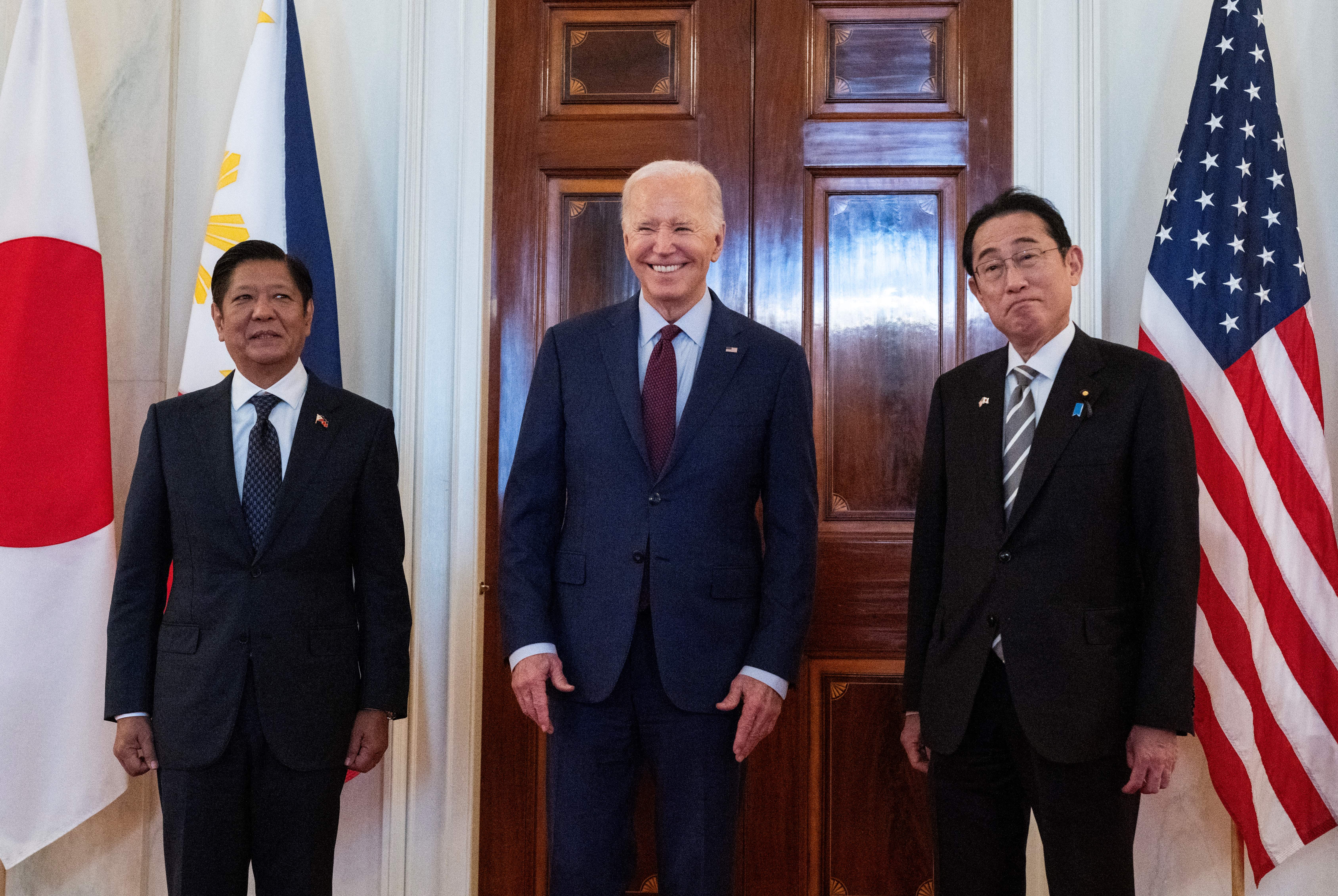Biden vows to defend Philippines from attack in South China Sea
US president meets Philippine president Ferdinand Marcos Jr and Japanese prime minister Fumio Kishida at White House on Thursday


Joe Biden has said Washington’s commitment to defending its allies in East Asia was “ironclad” as he promised to back Philippines against China’s attacks in the disputed South China Sea.
The US president met Philippine president Ferdinand Marcos Jr and Japanese prime minister Fumio Kishida at the White House on Thursday as tensions and concerns about provocative Chinese military action in the Indo-Pacific continued to surge.
“The United States’ defence commitments to Japan and to the Philippines are ironclad,” the US president said during his first-ever trilateral summit with the leaders from both the Asian nations.
“As I said before, any attack on Philippine aircraft, vessels or armed forces in the South China Sea would invoke our mutual defence treaty,” Mr Biden said.
The naval forces of China and Philippines have had direct confrontation in the South China Sea, especially in the disputed reef of Second Thomas. While Beijing claims direct ownership of the submerged reef, the Philippines has a garrison sitting atop a grounded warship in the waters.

The White House has called the trilateral meeting as a potent response from the US, Japan and the Philippines to China’s repeated “intimidation” attempts. A Biden administration official said that this first-ever meeting will send a message that China is “the outlier in the neighbourhood”.
According to a statement from the White House, Mr Biden and Mr Marcos during the talks “underscored their commitment to international law in the South China Sea” and reaffirmed their countries’ treaty obligations to defend each other.
Japan, Philippines and the US will also hold joint patrols in the Indo-Pacific region this year, a form of a follow-up on law enforcement drills carried out last year by the allies in the waters near the South China Sea.
The US Coast Guard will welcome members from the Philippine and Japanese coast guard onto their vessel during the patrol for training, the White House said.
Mr Biden also announced that the three nations were launching a new economic corridor in the Philippines as part of the G7 Partnership for Global Infrastructure Investment that would help develop clean energy, port, agriculture and other projects in the country.
The US president added that the three leaders were forging a “new era” and predicted “a great deal of history in our world will be written in the Indo-Pacific in the coming years.”
This is a landmark visit for Mr Kishida who also attended a glitzy dinner at the White House on Wednesday after one-on-one talks concluded.
He is the first Japanese leader to visit Washington as a state guest since former prime minister Shinzo Abe in 2015 who revised the interpretation of Japan’s pacifist Constitution to allow its self-defense-only principle to also cover its ally, the US.
Join our commenting forum
Join thought-provoking conversations, follow other Independent readers and see their replies
Comments
Bookmark popover
Removed from bookmarks